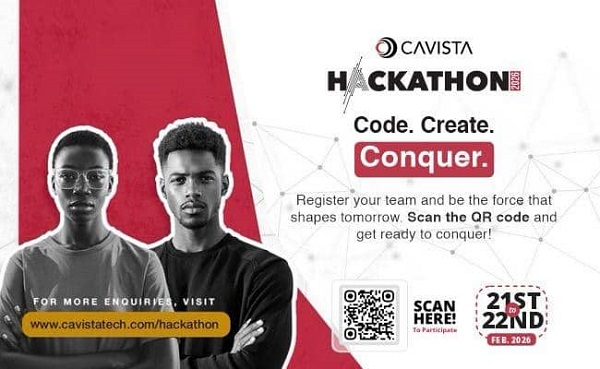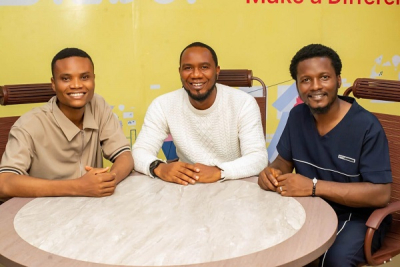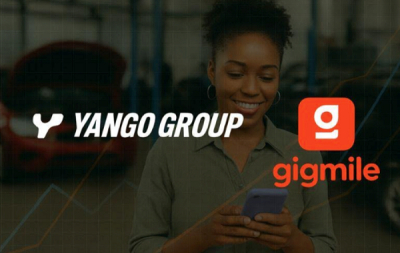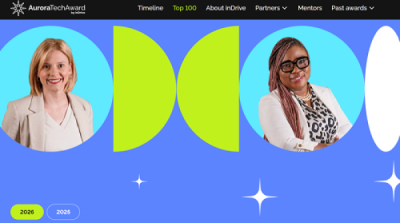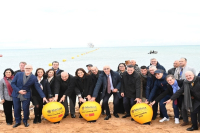- Zimbabwean entrepreneur Chido Dzinotyiwei co-founded Vambo AI to deliver artificial intelligence in users’ native languages.
- The platform prioritizes indigenous and local languages that remain underrepresented in digital technologies.
- Vambo AI combines writing, translation, and search tools to expand access to AI beyond dominant global languages.
Founded in 2023, Vambo AI places indigenous and local languages at the core of its technological vision. These languages remain largely underrepresented in the digital ecosystem. The company aims to provide tools of the same standard as those available for major internet languages, enabling users to think, create, and communicate in their own idiom.
The platform claims to deliver international-level artificial intelligence that combines performance and technical sophistication with intuitive language use. This approach seeks to reduce linguistic barriers that continue to limit access to information, opportunities, and digital tools for large segments of the population.
By integrating writing, translation, and search functions, Vambo AI positions itself as a digital companion for users who want to operate online in their native language. The platform promotes a more inclusive internet by valuing languages that global technology platforms often overlook.
Beyond Vambo AI, Chido Dzinotyiwei is a member of the OPUS entrepreneurs’ collective. She also founded Vambo Academy, an education technology platform launched in 2020 that focuses on preserving African languages through virtual learning. In 2022, she co-founded Akayi, a facilitator within Zimbabwe’s business ecosystem.
She graduated from the University of Cape Town with a bachelor’s degree in economics and finance, followed by a master’s degree in development finance from the Graduate School of Business. She began her professional career in 2020 at Standard Bank Group’s Corporate and Investment Banking division, where she worked for four years as an analyst in the finance and treasury unit.
This article was initially published in French by Melchior Koba
Adapted in English by Ange Jason Quenum
Cavista Technologies will hold its fourth hackathon on February 21-22, 2026, in Ikeja, Lagos. Open to students from universities and colleges in and around Lagos, the event will feature a 24-hour team challenge focused on developing practical technology solutions. Participants will compete for prizes worth several million naira and receive mentorship from members of Nigeria’s tech ecosystem.
Nigerian platform Bildup AI, which specializes in AI-powered personalized training, has closed a $400,000 funding round backed by angel investors. The capital will be used to grow the team, expand online offerings, and launch physical AI learning centers in Abuja and Lagos starting in 2026. The initiative aims to make digital skills more accessible to young Africans.
Delivery platform Chowdeck has partnered with startup GoLemon to stock its grocery warehouses and offer near-instant delivery through its app. While Chowdeck maintains control of its warehouse management and rapid logistics, GoLemon focuses on procurement, quality control, and scheduled grocery orders.
Tech group Yango has made a strategic investment in Nigeria’s Gigmile, a vehicle and financial services platform for gig workers in Africa. The partnership aims to support Gigmile’s regional expansion, improve last-mile delivery efficiency and promote financial inclusion for delivery drivers by combining technology, flexible financing and management tools.
The Aurora Tech Award has unveiled its list of 100 female tech founders to watch in 2026, selected from 3,400 applicants across 127 countries. The selection highlights the rising influence of women-led innovation in sectors such as healthcare, finance, and agritech, characterized by a strong adoption of artificial intelligence and a focus on Sustainable Development Goals.
- Orange Maroc inaugurated Morocco’s first open-access cable landing station in Nador to host the Medusa subsea cable.
- The Medusa cable spans more than 8,700 kilometers and links 19 landing points between Europe and North Africa.
- Orange Maroc plans more than 100 billion dirhams ($10.9 billion) in infrastructure investments over 25 years.
Orange Maroc announced on Tuesday, December 16, the inauguration in Nador of Morocco’s first open-access cable landing station. The strategic infrastructure will host the Medusa subsea cable. The cable extends over more than 8,700 kilometers and connects 19 landing points between Europe and North Africa. The system will strengthen Morocco’s international connectivity and support its ambition to become a regional digital hub.
“This is an infrastructure that Orange Maroc teams designed and delivered through local expertise, with active participation from Orange Group experts. It will allow Morocco to strengthen its digital sovereignty and support the digital development of the Moroccan economy,” said Mohamed Benali, Chief Technology & Information Officer of Orange Maroc.
The Medusa project targets data transmission capacity of up to 20 terabits per second per fiber pair through next-generation optical fiber technology. The cable connects Nador directly to Marseille and to other strategic points in the Mediterranean. This configuration will strengthen the resilience of digital exchanges between North Africa and Europe while diversifying connectivity routes. The landing station built by Orange Maroc covers 3,500 square meters and includes IT capacity designed to host advanced digital services.
A project aligned with a national and regional strategy
These developments align with Orange Maroc’s long-term strategy. The company plans more than 100 billion dirhams in investments over 25 years to develop national digital infrastructure. The strategy supports 5G deployment, artificial intelligence solutions, and digital sovereignty initiatives through the Orange Tech data center and cloud partnerships.
At a broader level, these initiatives also align with Morocco’s digital transformation ambitions. The country aims to build a high-performance, sustainable, and competitive digital ecosystem. This ecosystem will support national economic growth while integrating social and environmental commitments, including a target of 100% renewable energy use by 2040.
Economic and technological impacts
From an economic perspective, the arrival of the Medusa cable could reshape Morocco’s digital landscape. Improved international connectivity will attract new technology investments. The infrastructure will support the expansion of digital services and reduce bandwidth costs for businesses and users. The cable will also provide strategic redundancy amid rising data flows and growing demand driven by 5G, cloud computing, and artificial intelligence.
This article was initially published in French by Samira Njoya
Adapted in English by Ange Jason Quenum
- Gabon will officially launch onboard Internet service on passenger trains on December 23.
- The project will rely on OneWeb low-Earth-orbit satellite Internet operated by Eutelsat.
- Authorities aim to raise annual passenger traffic on the Transgabonais line to 330,000 by 2027.
The Gabonese government announced that it will officially launch onboard Internet service on passenger trains on December 23. The launch event will include a presentation of the solution and a live connectivity test onboard a train. Authorities and project partners will attend the demonstration.
The government announced the project on Monday, December 15. The Ministry of the Digital Economy, Digitalization and Innovation leads the initiative alongside the Ministry of Transport, Merchant Marine and Logistics. The project also involves the Transgabonais Railway Operating Company (SETRAG) and a private telecommunications operator. The operator will deploy OneWeb low-Earth-orbit satellite Internet from France’s Eutelsat group.
“In a first phase, onboard Internet access will allow exclusively the use of the WhatsApp application. The next stages of the project will enable a gradual expansion of services, depending on technical performance and observed quality of service,” the Ministry of the Digital Economy, Digitalization and Innovation said.
According to the ministry, the project aims to improve passenger comfort and user experience through the gradual integration of digital services into rail transport. The initiative aligns with Gabon’s broader digital transformation ambitions. Libreville seeks to position digital technology as a central pillar of socioeconomic development and to reduce dependence on extractive resources. The government adopted a legal framework in September to regulate and accelerate the digital transformation of public administration.
This improvement in customer experience comes as Gabonese authorities seek to increase traffic on the Transgabonais railway. The government aims to raise annual passenger numbers to 330,000 by 2027, compared with 260,000 passengers in 2022, representing growth of more than 26.9%. The initiative ranks among the transition government’s priority actions for the 2024–2026 period.
This article was initially published in French by Isaac K. Kassouwi
Adapted in English by Ange Jason Quenum
Five African startups have been named winners of the second NBA Africa Triple-Double Accelerator, an initiative supporting innovation in the sports and creative industries. Morocco’s Reborn, Egypt’s Fitclan and Athlon Technology, and Nigeria’s Atsur and Songdis will share financial awards, 12 months of mentorship at Carnegie Mellon University Africa, and technology credits to accelerate their growth.
- Joseph Wanjau founded Africa Cloud Space in 2015 to deliver SaaS and AI tools to African organizations.
- Africa Cloud Space targets schools, businesses, associations, and hospitals with ready-to-use digital management platforms.
- The company operates multiple products, including Cloud School, Ikomali, Majicloud, and Shiriki 365.
Joseph Wanjau is a Kenyan computer scientist and entrepreneur. He founded and currently leads Africa Cloud Space as chief executive officer. The company specializes in software-as-a-service solutions and artificial intelligence tools designed for schools and associations in Africa.
Africa Cloud Space launched operations in 2015. The company develops ready-to-use digital solutions that simplify and automate organizational management. It serves schools, businesses, associations, hospitals, and any institution that requires efficient tools for communication, activity tracking, and internal organization.
Among its products, Cloud School targets educational institutions seeking to modernize and centralize operations. The platform enables schools to manage all academic and administrative activities from a single digital space. The system allows access from all device types, which eases the workload of administrators and teaching staff.
In addition, Africa Cloud Space developed Ikomali as a multichannel point-of-sale solution for business-to-consumer companies. The platform enables merchants and retailers to track sales and in-store operations. It also structures customer relationship management.
The company also offers Majicloud as a knowledge management system. The platform centralizes information related to organization members. Meanwhile, Shiriki 365 automates all member-management operations. The solution primarily targets associations, clubs, and community-based organizations.
Alongside his entrepreneurial activities, Joseph Wanjau works as an information and communication technology consultant. He advises the Institute for Environmental Law and Governance in Kenya. He graduated from Jomo Kenyatta University of Agriculture and Technology. He earned a bachelor’s degree in computer science in 2013. Between 2013 and 2014, he worked as a software engineer at Craft Silicon, a Kenyan software development company.
This article was initially published in French by Melchior Koba
Adapted in English by Ange Jason Quenum
More...
- Côte d’Ivoire’s Economy Ministry adopted a 2026–2030 IT master plan to modernize public administration systems.
- The plan allocates CFA10.156 billion ($18 million) across 44 projects and six programs.
- The strategy aligns with a broader national digital push backed by a 37% budget increase for digital transition in 2026.
The Ministry of Economy, Planning and Development adopted the 2026–2030 Information System Master Plan. The strategic framework aims to modernize digital tools, strengthen data security, and optimize public service management. Officials presented the document during an official ceremony in Abidjan.
“The Master Plan now constitutes a strategic tool to strengthen digital governance and improve public action efficiency. This presentation, which brought together around forty participants, opens the way for the implementation of planned actions to provide the Ministry with a more modern, secure, and high-performing digital environment,” said Yéo Nahoua, Chief of Staff to Economy Minister Kaba Nialé.
The National Information Technology Development Company conducted an in-depth diagnostic review to support the update. The assessment identified structural gaps, including weak IT governance, multiple non-interconnected platforms, aging infrastructure, and insufficient security mechanisms.
To address these challenges, the plan relies on four key orientations. The strategy targets IT function professionalization, integrated network deployment, rollout of shared and secure applications, and modernization of technical infrastructure. The plan includes six programs and 44 concrete projects. The framework allocates a total budget of CFA10.156 billion, equivalent to about $18 million.
The initiative aligns with national priorities that position digital technology as a development driver. For 2026, the Ministry of Digital Transition and Digitalization secured a budget exceeding CFA83.2 billion. The allocation represents an increase of about 37% compared with 2025. The funding aims to improve digital performance and nationwide connectivity access.
These allocations add to prior investments that delivered tangible results in 2024. Authorities deployed more than 33,000 kilometers of fiber-optic infrastructure. The government launched digital administrative service platforms. The state expanded 4G coverage across multiple rural areas.
The implementation of the new master plan should support more structured digital governance and stronger system interconnection. The framework should also accelerate public service digitalization. The reforms should reduce processing costs and timelines. The upgrades should strengthen infrastructure resilience against cyber threats.
This article was initially published in French by Samira Njoya
Adapted in English by Ange Jason Quenum
- Hazem Afify founded Sumet in 2021 to modernize FMCG supply chains for African retailers.
- Sumet targets local and informal markets that traditional distribution networks serve inefficiently.
- The platform enables rapid deliveries, sometimes within 24 hours in major urban areas.
Hazem Afify is an Egyptian-born entrepreneur based in Dar es Salaam, Tanzania. He founded and currently leads Sumet as chief executive officer. The technology company redesigns fast-moving consumer goods supply chains for neighborhood retail stores.
Sumet launched operations in 2021. The company positions itself as a dedicated platform for fast-moving consumer goods. The platform aims to facilitate market entry and brand growth across Africa. The company focuses on local and often informal markets, where traditional distribution networks struggle to serve small retailers efficiently.
The platform allows merchants to order a wide range of branded products with a few clicks. The system provides fast delivery, sometimes within 24 hours in selected urban areas. This model reduces travel time, lowers logistics costs, and limits stock-out risks.
For brands and distributors, Sumet provides detailed visibility into product performance at individual retail outlets. The platform enables order tracking and merchandise flow monitoring. These features allow manufacturers to optimize delivery planning, adjust field presence, and better understand retailers’ operational needs.
Alongside Sumet, Hazem Afify co-founded and leads Global Business as chief executive officer. The export, import, and distribution company operates from Turkey. The company launched in 2015. It focuses primarily on fast-moving consumer goods and cosmetics. The company maintains branches in Tanzania, including Dar es Salaam and Zanzibar.
Hazem Afify graduated from Cairo University in Egypt. He earned a bachelor’s degree in electronic and communications engineering in 2007. He began his professional career in 2008 at Mentor Graphics. The electronic design automation company employed him as a technical marketing engineer and later as an integrated circuit design consultant until 2015.
This article was initially published in French by Melchior Koba
Adapted in English by Ange Jason Quenum
- Vuba Vuba launched in 2020 to fill the gap left by Jumia Food’s exit from Rwanda in 2019.
- The app connects users to restaurants, supermarkets, and local merchants with deliveries in under an hour.
- The platform has surpassed 100,000 downloads on Android and relies on motorcycle-based local logistics.
Vuba Vuba is a mobile application developed by a Rwandan startup. Albert Munyabugingo launched the platform in 2020. The application connects users to a wide range of restaurants, supermarkets, and merchants. The service offers fast deliveries, often in less than one hour.
The application operates on iOS and Android platforms. Google Play Store data show more than 100,000 downloads. The company relies on a strong local logistics network. The platform uses motorcycle couriers to distribute orders efficiently.
Beyond delivery services, Vuba Vuba creates economic opportunities for local stakeholders. The platform allows food outlets and small retailers to digitize sales channels. The solution helps merchants expand customer reach and increase order volumes without heavy investment in proprietary digital infrastructure.
The application integrates a tracking system that alerts customers when couriers collect orders. The system allows users to follow deliveries in real time and receive notifications when couriers approach. “Our team works diligently to ensure fast processing and delivery of orders. The estimated delivery time depends on your location. In general, you can expect your order to arrive within 45 minutes,” the startup said.
As e-commerce and digital services continue to expand across East Africa, Vuba Vuba demonstrates how locally adapted solutions can drive digital inclusion. The model supports entrepreneurship and responds to rising demand for efficient delivery services.
This article was initially published in French by Adoni Conrad Quenum
Adapted in English by Ange Jason Quenum
- Madagascar launched the process to draft its national cybersecurity strategy.
- Authorities aim to finalize the framework within three months.
- The strategy will update a cybersecurity law adopted in 2014.
Madagascar continues to structure its digital ecosystem after creating a national cybersecurity body in 2023. Authorities now focus on establishing a legal and strategic framework to protect systems and data amid rising cybercrime.
The Malagasy government formally launched the process to develop its national cybersecurity strategy last week following a kickoff workshop held in Antananarivo.
The event brought together public authorities, digital experts and technical partners. Officials presented the initiative as a key step toward securing the country’s digital space as digital usage expands across public administration, financial services and the broader economy.
“The stakeholders committed to finalizing this national cybersecurity strategy within three months,” said Eric Nirina Rakotomaniraka, head of the digital incident response team at the Computer Incident Response Team (CIRT).
He said the strategy will address key areas, including online child protection, combating gender-based cyber violence, digital justice, and international cooperation in cases of cyberattacks or data breaches.
On an operational level, the future strategy aims to structure cyber incident prevention, detection and response.
The document plans to strengthen national digital forensic capabilities, improve coordination between public institutions and private-sector actors, and support local skills development. Authorities also intend to use the strategy as a foundation to update the regulatory framework, as the 2014 cybersecurity law increasingly fails to reflect evolving technologies and threats.
The initiative comes as digital usage expands but information systems remain fragile. According to the Digital 2025 report, Madagascar counted approximately 6.6 million internet users in 2025, representing just over 20% of the population, a level that remains modest but continues to rise steadily.
At the same time, Madagascar faces limited cybersecurity capacity. The International Telecommunication Union’s Global Cybersecurity Index 2024 ranks the country in Tier 4 out of five.
This classification reflects significant gaps, particularly in technical infrastructure, institutional coordination, skills development and international cooperation.
Authorities expect the national cybersecurity strategy to strengthen protection of digital infrastructure, increase citizen and investor confidence in digital services, and support Madagascar’s broader digital transformation.
By laying the foundations for stronger digital sovereignty, the government aims to create a safer environment for innovation, online public services and the country’s integration into regional and global digital ecosystems.
This article was initially published in French by Samira Njoya
Adapted in English by Ange Jason Quenum



